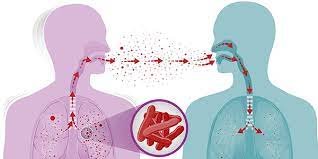The accuracy of the tests to detect SARS-COV2 infection in a body is running into confusion. This in turn is creating doubts in the minds of people at large who are following every discussion about the corona virus and understanding it in their own ways. The corona virus called COVID19 is a new disease and its behaviour is still a matter of study and for this reason there cannot be a final word on it yet and it is likely that there will not be for a long time to come.
Here in this state itself there have been cases of inaccurate results of tests. One recalls the case of a 70 year old man who was declared positive and had his house and compound under the containment tag later had to be retracted by the State Directorate of Health Services (DHS). When they took his tests by both RT-PCR (reverse transcription polymerase chain reaction) and Rapid Antigen Test the patient did not show any signs of having anti-bodies in his blood. He was declared the first ‘false positive’ case. This was a learning process for the doctors and COVID19 managers in the state.
While the Antigen test was being used as a faster way of testing and was being recommended, the Meghalaya High Court had last month declared that it is not 100 percent accurate and required that all testing centers equip themselves with CBNAAT (RTPCR) based testing faculties. It put its weight behind the RT-PCR method which it recognized as the gold standard test as affirmed by experts in the field.
Rapid antigen detection tests are faster and take up to 30 minutes compared to 2-5 hours in RT-PCR tests. As it is the Indian Council of Medical R has laid down that symptomatic persons who test negative in the rapid antigen tests should be followed up with an RT-PCR test as the negative result could be a false one.
However, this is not conclusive as the accuracy of the RT-PCR is also said to be about 70 % depending on the testing conditions. Researchers say that the accuracy ranges from 66 % to 80%. To quote an article, “that means nearly one in three infected people who are tested will receive false negative results.” This has wide implications for communities such as the tribes and smaller ethnic communities who need to be protecting their tiny populations from the Covid19 virus because the long term effect on the human body is still a matter of study, even though some papers forewarn that this virus might have debilitating effect on important organs of the body.
What this basically means is that the people should seriously follow the old adage that prevention is better than cure and keep safe by adhering to the safety protocols of keeping away from crowded places, social distancing, wearing masks, wash and sanitizing hands.
























